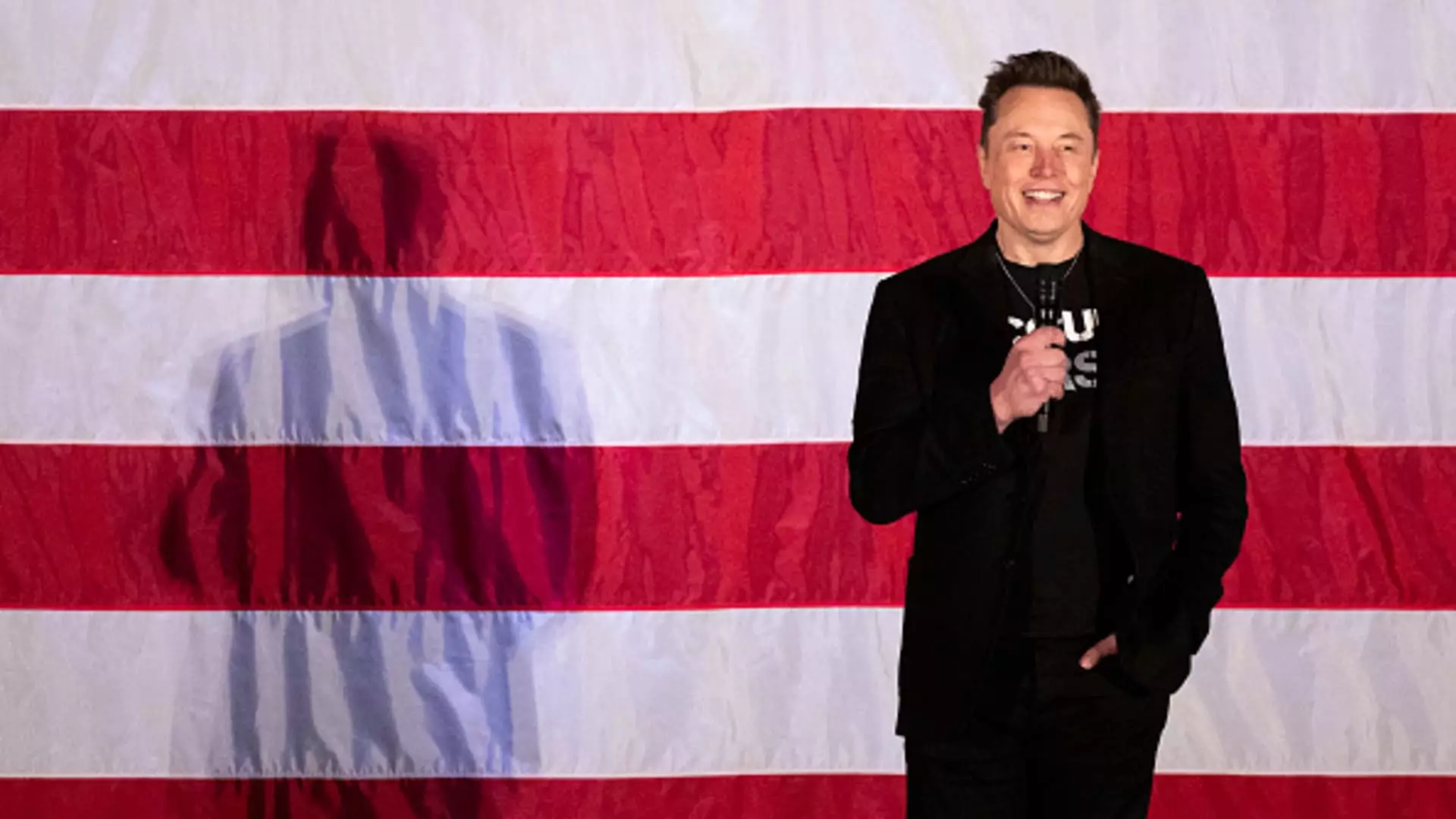Recently, the Philadelphia District Attorney’s Office has initiated a contentious lawsuit aimed at Elon Musk and his political action committee, America PAC, regarding their controversial $1 million prize initiative for registered voters in swing states. Accusations have been leveled that this initiative constitutes an “illegal lottery,” a claim that raises significant legal and ethical questions about the intersection of politics and electoral integrity. District Attorney Larry Krasner’s legal filing reflects an escalating concern within governmental structures about the influences shaping the upcoming presidential election.
At the core of Krasner’s lawsuit is the assertion that Musk’s initiative violates Pennsylvania laws governing lotteries. The suit alleges that participants are enticed to submit personal information – including contact details and a commitment to uphold constitutional values – in exchange for a chance to win a substantial monetary reward. This practice, as described by the DA’s office, not only transforms the electoral process into a potential gamble but also prompts fears of coercion and manipulation among voters.
The implications of this challenge expand beyond mere financial stakes. The act of linking personal data submission with lottery-like incentives may create confusion, suggesting to residents that political support can be traded for money. This leads to serious concerns regarding the integrity of voter engagement and the fairness of the electoral process.
The Legal Landscape of Pennsylvania’s Lottery Laws
Krasner’s lawsuit cites specific Pennsylvania laws that outline the regulations surrounding lotteries and games of chance. According to these statutes, all lotteries must be sanctioned and regulated by the state to ensure transparency and fairness. By circumventing these protections, Musk’s initiative potentially violates consumer protection laws as well, as suggested by the lawsuit’s claim that it employs misleading language and tactics. This aspect of the case will likely be pivotal as it unfolds in court.
Moreover, the legal ramifications extend to potential implications for voters’ rights and privacy, engaging broader discourses on how technological and social media aspects impact political participation. The ability of individuals to freely engage in the electoral process should ideally be safeguarded against tactics that exploit personal data for manipulation or coercive gain.
Musk’s endorsement of Republican nominee Donald Trump and the development of this initiative coincide with a highly volatile political climate. As Democrats and Republicans prepare for a contentious presidential battle, allegations of election manipulation are particularly sensitive. Adding fuel to the controversy, President Joe Biden remarked on the initiative sarcastically during a recent public speaking engagement, indicating the widespread concern about its appropriateness and potential repercussions.
The timing of the lawsuit, directly following warnings from the U.S. Department of Justice about America PAC’s initiatives, underscores the growing scrutiny that Musk and his associates face. Several inquiries earlier this year from state officials regarding America PAC’s practices of gathering personal information further suggest that these tactics are under close watch, eliciting skepticism about the organization’s intentions.
One of the most troubling dimensions of this situation revolves around voter trust. If individuals perceive that their data might be leveraged against the spirit of an open and fair election, it may engender disillusionment, leading to apathy and disengagement from the electoral process altogether. Voter confidence is critical to the functioning of democracy, and any efforts perceived as undermining that could have long-lasting repercussions.
In a climate where misinformation and distrust are already rampant, this initiative could be viewed as yet another blight on the democratic process. This ongoing legal battle, therefore, represents not only a challenge against a significant tech figure but also a crucial discourse on protecting democratic integrity in America.
As the court hearing scheduled for Friday approaches, many will watch closely to understand how this case unfolds. Will the court view Musk’s initiative as a genuine effort to engage voters, or will it align with the assertion that it represents an unlawful attempt to influence the electoral process? The outcome could have significant ramifications for future political campaigns and the role of technology in shaping voter engagement, as well as defining the boundaries of permissible election-related activities.

Leave a Reply